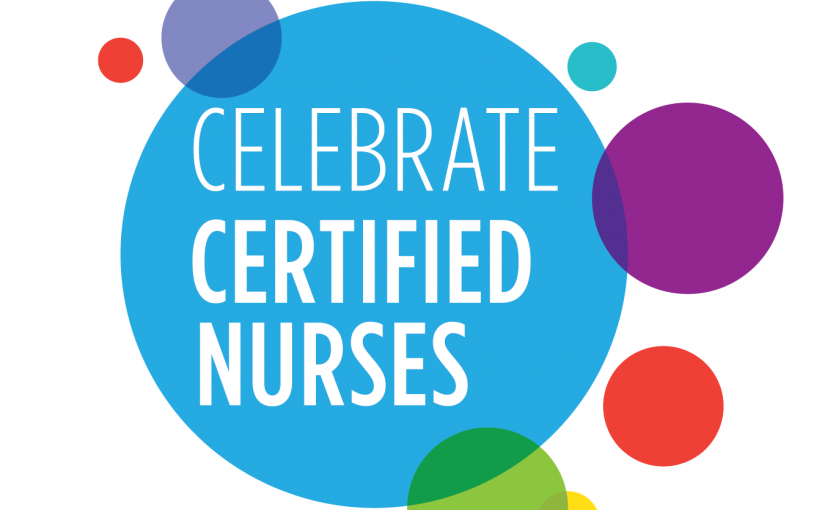Nursing homes are massively underfunded yet tasked with providing care to more than 1.6 million mostly older, incredibly sick, usually post-acute care patients each year. Are they getting fair treatment in the media?
Tag: GeroNursePrep
CMS Issues Nursing Home Reopening Recommendations for State and Local Officials.
Today, CMS provided recommendations [cl.exct.net] on a nursing home phased reopening for states. The recommendations cover the following items:
- Recommendations for testing residents and staff
- Dedicated space for cohorting residents with COVID-19
- Criteria for relaxing certain restrictions and mitigating the risk of resurgence
- Visitation and service considerations
- Restoration of survey activities
The guidance encourages state leaders to collaborate with the state survey agency and local health departments to decide how these criteria should be implemented. Given the critical importance in limiting COVID-19 exposure in nursing homes, CMS recommends that decisions on relaxing restrictions be made with careful review of the following facility-level, community, and state factors:
- Baseline test of all residents, weekly testing of all staff, practicing social distancing, and universal source control for residents and visitors (e.g., face coverings)
- Status of COVID-19 cases in the local community
- Status of COVID-19 cases in nursing homes
- Adequate staffing
- Access to adequate personal protective equipment (PPE)
- Local hospital capacity
Read the press release [cl.exct.net], guidance [cl.exct.net] and FAQs [cl.exct.net] from CMS.
CMS Issues Nursing Homes Best Practices Toolkit to Combat COVID-19
CMS released a new toolkit [cl.exct.net] intended to serve as a catalog of resources dedicated to addressing the specific challenges facing nursing homes as they combat COVID-19.
CMS says the toolkit provides resources and direction for quality improvement assistance and can help in the creation and implementation of strategies and interventions intended to manage and prevent the spread of COVID-19 within nursing homes. The toolkit outlines best practices for a variety of subjects ranging from infection control to workforce and staffing. It also provides contact information for organizations who stand ready to assist with the unique challenges posed by caring for individuals in long-term care settings.
Happy National Nurses Day!
May 6th is National Nurses Day. Find out more about the history of this yearly event and some ways to celebrate it at https://nationaltoday.com/national-nurses-day/
Are You Ready for Certified Nurses Day?
Every March 19, employers, certification boards, education facilities, and healthcare providers celebrate and publicly acknowledge nurses who earn and maintain the highest credentials in their specialty.
Certified Nurses Day™ honors nurses worldwide who contribute to better patient outcomes through national board certification in their specialty. A registered nurse (RN) license allows nurses to practice. Certification affirms advanced knowledge, skill, and practice to meet the challenges of modern nursing.
Inspired by Dr. Margretta ‘Gretta’ Madden Styles, RN, EdD, FAAN, a pioneer in nursing certification, Certified Nurses Day is the perfect opportunity to invite all nurses to advance their career by choosing certification.
Find out how you can help celebrate at https://www.nursingworld.org/education-events/certified-nurses-day/
Wishing You All the Best This Holiday Season!
From the faculty and staff of the AHCA/NCAL Gero Nurse Prep program.
SNFs with Board Certified RNs Achieve Better Outcomes and Receive Fewer Deficiencies!
Research conducted by AHCA/NCAL earlier this year shows that SNFs that employ at least one American Nurses Credentialing Center (ANCC) Board certified RN also, on average, performed higher on SNF VBP performance. The average 2017 SNF VBP performance score across the nation was 34.4. For SNFs with at least one RN who has been ANCC Board certified in gerontological nursing, the average SNF VBP performance score was 44.2. The net result is that these SNFs get higher Medicare Part A reimbursements.
The AHCA/NCAL 2019 research also found that SNFs with at least one ANCC Board certified RN also experienced:
- Fewer survey deficiencies
- Fewer IJ citations
- Lower rehospitalization rates
- Lower rates of off-label use of antipsychotics
- Higher CMS 5-Star ratings
The ANCC offers certification in gerontological nursing – the gold standard in demonstrating clinical excellence in geriatric patient care. ANCC is the world’s largest and most prestigious nurse credentialing organization and a subsidiary of the American Nurses Association. Less than one percent of America’s RNs are board certified in gerontological nursing.
To help RNs prepare for the certification exam, AHCA/NCAL offers an online course called Gero Nurse Prep. RNs who complete the course earn 30 nursing contact hours and experience a 96% pass rate on the ANCC certification exam on the first try. Gero Nurse Prep students see a whopping 24 percent average increase between their pre- and post-test scores.
Gero Nurse Prep is flexible. RNs study online at their own pace and have one year from the time they enroll to complete their Gero Nurse Prep coursework.
Gero Nurse Prep is on sale through November 30! Save $100 off the regular registration fee by using promo code RNHERO (all caps). AHCA/NCAL Gero Nurse Prep provides tremendous value at this AHCA/NCAL member $590 sale price. That’s less than $20 per contact hour for outstanding nursing education that makes a measurable difference on so many fronts. For RNs interested in pursuing Board certification through ANCC, there is an additional and separate cost of $395.
To learn more about Gero Nurse Prep and ANCC Board certification, watch this video. For an even deeper dive into competent geriatric nursing, listen to this free AHCA/NCAL webinar “Competent Geriatric RNs – The New Driver of Financial Performance.”
Please join us at the 2019 Quality Summit!
Heidi Keeler, Anna Fisher, Dave Kyllo and Angie Szumlinski invite you to join them on Monday March 18th, from 1-2:30 as they explain how ANCC credentialing and and board certification in gerontological nursing can strengthen the ability to demonstrate overall clinical competence and improved resident outcomes with surveyors in this educational session.
“Competent Geriatric RNs – The New Driver of Financial Performance.”
Description: Competent RNs drive quality care and outcomes in long term care settings. PDPM and value- based purchasing also means they now control the financial success of a facility. Providers need to sharpen the clinical knowledge and leadership skills of their RNs if they are to succeed in this new environment. This session will discuss how offering specialized training such as the Gero Nurse Prep course prepares RNs for the new challenges and positions them for board certification in gerontological nursing through the American Nurses Credential Center.
Learning Outcomes:
- Describe the key clinical outcomes that improve in facilities with ANCC board certified RNs
- Discuss how Gero Nurse Prep and ANCC board certification increase RN confidence and competence in the assessment process and clinical leadership
Explain how ANCC credentialing and board certification in gerontological nursing can strengthen the ability to demonstrate overall clinical competence and improved resident outcomes with surveyors
Wishing You All the Best This Holiday Season!
From the faculty and staff of the AHCA/NCAL Gero Nurse Prep program.
The real life cost of inaccurate wound documentation.








